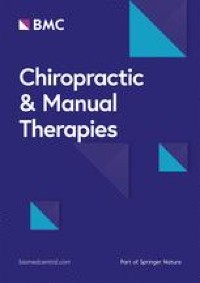Introduction:

In recent years, dietary supplements have gained significant popularity among individuals seeking to support or enhance their health. These supplements include vitamins, minerals, herbs, botanicals, amino acids, and various other substances. Though dietary supplements are not intended to replace a balanced diet, they are commonly used to bridge nutritional gaps, optimize health, and prevent deficiencies. This article aims to explore the role and impact of dietary supplements on human health, shedding light on their benefits and potential risks.
Benefits of Dietary Supplements:

Dietary supplements, when consumed responsibly and as part of a well-rounded diet, can provide several benefits. If you loved this article and you would like to get a lot more info about Health seminars kindly check out the web page. Primarily, they can offer nutritional support and help individuals meet their recommended dietary allowances (RDAs) for specific nutrients. Certain groups, such as pregnant women, the elderly, and those with specific medical conditions, may require additional supplementation to ensure proper nutrient intake.
Additionally, dietary supplements are often used to support overall health and wellness. For example, omega-3 fatty acids found in fish oil supplements have been associated with improved cardiovascular health and reduced inflammation. Similarly, antioxidants like vitamin C and E can protect against cellular damage caused by free radicals, potentially lowering the risk of chronic diseases such as cancer and cardiovascular problems.
Furthermore, some individuals may use dietary supplements to address specific health concerns. For instance, calcium and vitamin D supplements are widely recommended for reducing the risk of osteoporosis and maintaining bone health. Iron supplements, on the other hand, are commonly prescribed to treat or prevent anemia. These targeted supplements can play a crucial role in managing certain medical conditions and improving overall health outcomes.
Risks and Considerations:
While dietary supplements offer potential benefits, it is important to recognize and address the associated risks. One critical consideration is that dietary supplements are not subject to the same regulation as pharmaceutical drugs. Unlike medications, supplements do not require approval from the Food and Drug Administration (FDA) before hitting the market. Consequently, their quality, safety, and efficacy can vary significantly between brands and products. Therefore, it is essential to select supplements from reputable manufacturers who adhere to industry standards and regularly perform quality checks.
Another risk associated with dietary supplements is the potential for adverse interactions with prescribed medications. Some supplements can interfere with the absorption, metabolism, or effectiveness of certain drugs, and may even lead to harmful side effects. Hence, it is crucial for individuals to disclose their supplement use to healthcare professionals to ensure proper coordination and minimize any potential interaction risks.
It is imperative to note that dietary supplements should never substitute a balanced diet consisting of whole foods. Despite their benefits, isolated nutrients in supplement form may not provide the same synergistic effect as those derived from whole foods. Nutrients from natural food sources are often accompanied by other compounds that enhance their absorption and utilization in the body. Thus, dietary supplements should be viewed as an adjunct to, rather than a replacement for, a well-balanced diet.
Conclusion:
Dietary supplements can be valuable tools in maintaining overall health and addressing specific nutritional needs. When used correctly, they can provide essential nutrients, support overall well-being, and contribute to reducing the risk of certain health conditions. However, it is crucial to approach supplement consumption with caution and understanding. Selecting high-quality products from reputable manufacturers, seeking professional guidance, and maintaining a balanced diet are essential considerations to optimize the benefits of dietary supplements while minimizing potential risks. Ultimately, each individual should work closely with healthcare professionals to develop an appropriate supplement regimen tailored to their unique needs and health goals.